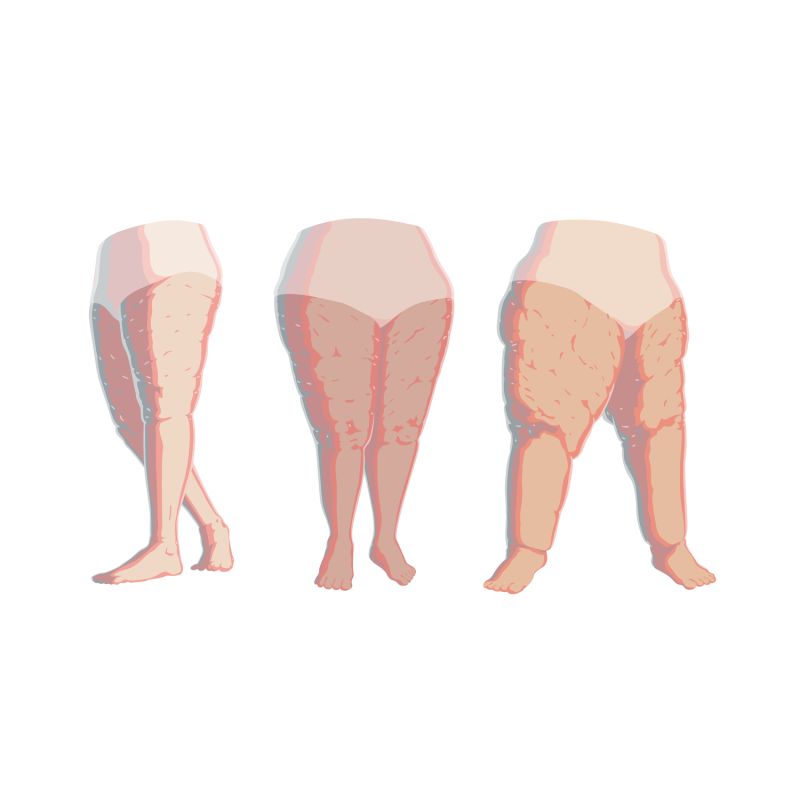One of the hardest things about Lipedema is the uncertainty. So many of us are diagnosed years after our symptoms begin – and by then, we’re already have Lipedema pain, are frustrated, and wondering if there was anything we could have done earlier.
This blog post doesn’t promise a magic cure for Lipedema (unfortunately one doesn’t exist). But it will help you understand:
- Whether Lipedema can be prevented
- What we know about risk factors
- What you can do to slow Lipedema progression or take early action
Is Lipedema Preventable?
Right now, there’s no way to completely prevent Lipedema. It’s believed to be genetic and hormonal, meaning if it runs in your family or if you go through significant hormonal changes – puberty, pregnancy or menopause – you may be more likely to develop it.
That being said – early awareness and action can make a big difference. The sooner you spot the signs and begin to support your body, the better chance you have of managing Lipedema symptoms and slowing progression.
Who’s Most at Risk of Developing Lipedema?
You may be more likely to develop Lipedema if you:
- Are biologically female
- Have a family history of Lipedema
- Notice disproportionate lower-body weight
- Experience hormonal shifts (e.g. puberty, pregnancy, menopause)
- Have symptoms like leg pain, swelling, or easy Lipedema bruising
You can read more about the early symptoms of Lipedema here.
What Can You Do to Help Reduce Risk or Progression?
Here’s where things get empowering. While we can’t guarantee prevention, there are several things you can do to support your body and possibly reduce the risk or severity of Lipedema symptoms.
Understand Your Family History
If Lipedema runs in your family, be proactive. Keep a diary of symptoms, take photos, and speak to your doctor early – especially during life stages where Lipedema can be triggered.
Eat an Anti-Inflammatory Diet
While diet won’t stop Lipedema from developing, reducing inflammation through food may help manage symptoms or slow progression.
Focus on:
Leafy greens, omega-3s, berries, lean proteins
Avoid:
Refined sugar, ultra-processed food, seed oils
More detailed info here: Anti-Inflammatory Diet for Lipedema
Stay Gently Active
High-impact exercise can cause pain or swelling, but gentle, regular movement like walking, swimming, or rebounding for Lipedema can help your lymphatic system work better – and keep fluid and inflammation down.
Consider Compression Early
Even if you haven’t been diagnosed, light Lipedema compression garments can improve circulation and reduce early symptoms like heaviness, pain, and daily swelling.
Learn What Triggers Your Symptoms
If you’ve started to notice symptoms (even in the early stages), tracking what causes flare-ups can help keep progression at bay. Look out for:
- Hormonal changes
- Heat or humidity
- Long periods of sitting or standing
- Certain foods (e.g. high-sugar, gluten, alcohol)
- Stress
Why Early Diagnosis Is Key – Even Without Prevention
We may not be able to stop it, but an early Lipedema diagnosis gives you options. The sooner you know what you’re dealing with, the sooner you can:
- Start treatment
- Reduce pain and swelling
- Slow progression
- Avoid misdiagnosis or unhelpful weight-loss plans
- Reclaim a sense of control
Need help finding a professional? Our Find a Lipedema Specialist directory lists doctors and nurses around the world who understand Lipedema and won’t dismiss your symptoms.
So, Can you Prevent Lipedema?
Right now, there’s no guaranteed way to prevent Lipedema. But that doesn’t mean you’re powerless. Understanding the risk, noticing the signs early, and taking action with a Lipedema diet plan, gentle movement, and emotional support can change your journey entirely.
If you think you might be in the early stages of Lipedema – trust yourself. Ask questions. Speak up. You’re not being dramatic. You’re being proactive – and that matters more than you know.
Disclaimer: My blogs talk about Lipedema, diet, surgery and much more. I’m talking from my point of view to help women, and remind them they are not alone. I am not a medical professional, so the content above is from my own perspective with research I have done into the topic. It’s not meant as medical advice, you should always consult your doctor or a specialist for both your diagnosis, and a treatment plan.




